Source Article Link: Israel Prime Minister Office
PM Netanyahu’s Speech at Opening of the Knesset’s Winter Session
October 31, 2011

Photo By GPO
The Knesset is returning to its winter session at a time when the most dramatic events of our time are taking place in our region.
The Arab street has awoken; old regimes have toppled, others are swaying and new ones are rising.
No-one can guarantee how good or how stable these new regimes will be, nor their attitude towards Israel. Unfortunately, this attitude, which left much to be desired to begin with, is not expected to get any better in some, or most, of the new regimes, not in the foreseeable future.
These new regimes depend on the masses, the raging masses, of which many of the people have been systematically poisoned with anti-Semitic and anti-Zionist propaganda. This incitement began even before the State of Israel was established, and continues at full steam today.
If the results of the elections in Tunisia a few days ago are anything to go by, we will probably see the rise of other governments with a dominant Islamist component.
In most countries in the region, the Islamist movements are the strongest, most organized power, while the liberal forces, striving for freedom and progress, as we define the terms, are divided and weak.
If the positions of the religious extreme do not become more moderate, I doubt that any of the high hopes that blossomed in the Arab spring, will be realized.
It is possible that these hopes will only be fulfilled a generation from now, after this wave subsides, when progress will be given a chance to lead the Arab world along a new path.
If I had to summarize what will happen in our region, I would use two terms: instability and uncertainty.
The collapse of Gaddafi’s regime in Libya, the bloody incidents in Syria, the American forces leaving Iraq, the new government in Tunisia, the upcoming elections in Egypt and many other events – these are all expressions of the immense changes occurring around us. These changes can increase the instability within these countries, and the instability between countries.
Regional powers who have control in the Middle East will try to ensure they have greater influence on the new regimes – influence that will not always support us or be of benefit to us, to say the least. One of these regional forces is Iran, which continues its efforts to obtain nuclear weapons. A nuclear Iran would pose a dire threat on the Middle East and on the entire world. And of course, it poses a grave, direct threat on us too.
To cope with the instability and the uncertainty we are faced with, we need two things: strength and responsibility. Strength in all areas: security, economy, society, everywhere; and responsibility in navigating the stormy sea in which we are sailing. We must continue to strengthen Israel in all areas of security so that we can respond to the new challenges and threats we are facing.
Only a few days ago we were reminded that one of the challenges we face is dealing with the tens of thousands of rockets and missiles in the hands of our enemies, and aimed at our cities.
The Iron Dome batteries and other defense systems provide only a partial solution. They boost the protection of the citizens of the South, and I intend to deploy these systems in other places in the country. But a security philosophy cannot rely on defense alone. It must also include offensive capabilities, which is the very foundation of deterrence.
We operate and will continue to operate intensely and determinately against those who threaten the security of the State of Israel and its citizens.
Our policy is guided by two main principles: the first is “if someone comes to kill you, rise up and kill him first,” and the second is “if anyone harms us, his blood is on his own hands.”
For two thousand years our people could not realize these two basic principles of self defense. The Jewish people paid the ultimate price in the history of the world due to this inability.
This changed when the State of Israel was established, and the Israel Defense Forces was founded. The governments of Israel acted on these principles: they fought those who threatened us and attacked those who harmed us.
Since assuming the office of Prime Minister, I have instructed the IDF and security forces to act systematically and decisively against the terrorist leaders and those who carry out the attacks.
That is what we did with the terrorist group from the Sinai a couple of months ago. The person who initiated and organized the attack was eliminated several hours later. That is also how we acted this weekend. And I would express my appreciation once more to the IDF soldiers, to the armed forces and the intelligence units who work tirelessly, around the clock, morning-evening-night, to protect our country and all of us.
We will continue to act strongly to defend ourselves, and we will continue to conduct ourselves responsibly in the complex reality of our region. Some of the Members of Knesset may not have noticed that we live in a complex reality.
We witnessed this complexity two months ago, when an enraged mob attacked the Israeli embassy in Cairo. The mob didn’t care whether we have a treaty or not. Its intentions were clear and its message was obvious. Those were intense and complex moments. I thank Defense Minister, Barak and Foreign Minister, Lieberman. We worked together with the US Administration and the Egyptian Government and we brought the incident to its conclusion, bringing those who were trapped in the embassy, and their families, home.
Reality, which is changing before our very eyes, presents many obstacles that we are faced with from time to time. It also provides us with opportunities that we do not necessarily see. In this changing world, Israel is rapidly becoming a leading force in the cyber field, known as the war of computers.
Thanks to our special abilities in this area, large, important countries want to cooperate with us. This opens up opportunities for establishing new partnerships that were not available to us in the past and I anticipate that it will become a major factor on the international level. In order to strengthen our standing in the cyber arena, I recently established the National Cyber Directorate. That is the future, and we are already there.
Fostering the strength and responsibility required to fortify Israel’s security is also paramount in our quest for peace. In the Middle East, peace is made with the strong, not with the weak. The stronger Israel is, the closer peace will be.
The people in Israel are united in their desire for peace. Yet we seek real peace; peace that is anchored in the right of the Jewish people to a nation-state in its homeland; peace that is based on security.
We are willing to compromise, but not to discard our security. Even before the earthquake shook our region, I stood firm on Israel’s security interests, and today more than ever.
I assure you that in the negotiations for peace, we will continue to insist on our national interests, first and foremost, security.
Last weekend it was said that I am a tough bargainer. I know that was said as criticism, but I take it as a compliment.
Well, Chairman of the Palestinian Authority, President Abbas, I am not tough when it comes to peace. I am tough about the security of the State of Israel and its citizens, and I will continue to be so – that is my utmost duty, my very basic responsibility as the Prime Minister of the State of Israel.
I am willing to make real peace with our neighbors, but I am not willing to risk our security and future. Any peace deal must be accompanied by firm security agreements on the ground; otherwise it just will not last.
For the negotiations to end, they first need to be started. I have called upon the Palestinian leadership time and time again to enter direct negotiations without delay. I appealed to them to do so in my Bar Ilan Speech, I asked them to do it in my speech at the Knesset, I urged them to do it in my speech at the American Congress and I recently proposed it to them at the United Nations , and dozens of other times in between.
I also accepted the Quartet’s proposal for direct negotiations with the Palestinians with no preconditions. Regrettably, the Palestinians continue to refuse to engage in direct negotiations with us. Instead of sitting at the negotiation table, they decided to join the Hamas and take unilateral steps at the United Nations.
We will not idly sit by while these steps harm Israel and severely violate the most basic obligation that the two parties took upon themselves in the peace process – to resolve the conflict between us only through direct negotiations.
Unfortunately, while we support the foundation of a Palestinian state as part of a peace agreement, the Palestinians are trying to reach a Palestinian state without a peace agreement. That is the essence of our reality and anyone with eyes to see and a sense of decency knows it.
And I will not agree to that.
No responsible leader would.
Our friend, the United States, stands firmly at our side and opposes the Palestinian unilateral steps at the United Nations, and we are very grateful for that.
I know that there are those who have doubted the Israeli-American relations. But the alliance between us is deeply rooted and solid. The cooperation between the United States and Israel encompasses many important areas.
The alliance is based on the strong support of the American people for Israel, on shared values and common goals. This support has become even stronger in the last few years.
Like us, the United States attaches great importance to the peace treaties between Israel and Egypt and the Hashemite Kingdom of Jordan.
These treaties are an anchor of stability in the region and are clearly an Israeli interest.
Over the last year we also enhanced our ties with other countries in the region from Greece to Cyprus, Romania and Bulgaria.
And regarding Turkey, we see that even when we disagree, we help each other out in times of need due to natural disasters.
That is what Turkey did during the Carmel forest fire and it is what we did after the earthquake in Turkey last week.
I hope that we find the way to improve the relations between the two countries in the future.
Strength and responsibility, they are the driving force behind our actions in the political and security arena, and they are our compass.
The same means are needed for successfully dealing with the great challenges in the economic and social area.
Over the last few years, the world economy has been in a crisis which is not over yet. The sea is stormy there too.
Major Western countries that did not act responsibly, that did not heed the danger, were occupied with chatter and did not do what was required of them – those countries now find themselves on the verge of bankruptcy. Not only have their credit ratings gone down, but many, many people are unemployed.
So far this economic storm has skipped over Israel. There is no doubt that the responsible way in which Israel has conducted itself over the last decade contributed to that fact.
There is one golden rule that every citizen knows from his own home economy: over time, if you spend more money than you make, you will eventually go bankrupt. The overdraft grows and you collapse. This is true for a family and it is true for a country. There are countries around the world that forgot the rule, and are now paying dearly. Israel acted differently, responsibly.
Israel acted differently, responsibly. That is how I acted as Finance Minister, it is how the finance ministers after me acted, and it is how we act today. But you cannot generate the growth that is vital for creating jobs, growth that is vital for resources, for education, health, you cannot generate growth only by responsibly sticking to the budget. In order to make the market grow one must encourage competition. Not cartels, not monopolies, but fair, supervised competition that benefits the consumer. Competition is not the enemy of the consumer. On the contrary – it is the consumer’s greatest friend. It reduces prices, improves service, reduces gaps, and raises the standard of living. Lack of competition in Israel is one of the most severe causes for the increase in the cost of living, and that is why a year ago, Mr. Speaker, not now, not two or three months ago, I established the Committee on Increasing Competitiveness in the Economy. That is why we are advancing the section of the Trajtenberg Committee’s recommendations on increasing competition in the market, and for good reason.
Yesterday, at the Cabinet Meeting held in Tzfat, we approved the recommendations of the committee dealing with taxation; we cancelled the planned increase on excise tax, a step that benefits every Israeli citizen; we reduced the purchase tax and duty on commodities; we gave extra tax credit points to fathers of children up to the age of three, which will be very helpful for young couples. But these are only the first steps.
I am pleased that all the Members of Knesset want to help, and you will all have the opportunity to do so, as I plan to introduce several bills to the Knesset during this session that will help the citizens – guaranteed. Education for preschoolers will cost less, the burden of taxes will not be so heavy and housing will be more available. I am aware of the real difficulties which you speak about, Mr. Speaker, and I am committed to solving them, including resolutions that we will pass during this session, and I hope the opposition will help too.
Members of Knesset, I promised that I would give you an answer. We are committed to acting with the utmost social sensitivity to change priorities, but I do not accept the claim that the free-market system has collapsed, that we must return to a centralized economy run by clerks, an economy in which the government must be involved in everything and control everything, an economy in which the citizens will have to run around government buildings and beg before the bureaucratic powers. We have been there and we are not going back. That is how to kill an economy, how to destroy it.
MK Gilon is concerned about social needs. But you cannot take care of these things if you do not create the resources, and the resources are not generated by the government, but by the free, open economy. So we must balance the needs of economic growth with social needs, and that is precisely what we are doing and are going to do. […] And invest in the periphery of Israel.
Yesterday, we inaugurated, with you, Mr. President, a new medical school in Tzfat. This is great news for the Galilee. After a decade of promises, we will soon start moving military bases to the south, which is great tidings for the south. We are a government that not only promises but does, a government that not only talks about things but realizes them. We are building highways, interchanges, overpasses, trains, and we are finally easing Israel out of the Hadera-Gedera traffic jam.
Yesterday, at Tzfat, I gave an account of my grandfather and father going there 91 years ago. They went from Yaffo or Neve Tzedek, that what Tel Aviv was at the time. They took the Emek (Valley) railroad. They arrived in Tzemach and sailed in a stormy sea to Tiberius. And from there they continued up. Before leaving for Tzfat I asked my father, and he said “a hard, harsh journey.” That is how he described it. Through Rosh Pina, having to change the horses with carriage. This trip, this journey took three days, 91 years ago. A few years ago it would take three hours. I asked the Mayor of Hatzor HaGlilit, Swissa, how long it takes him now. He said one hour and 40 minutes. I told him it’s going to be faster. Not only because of the interchange at HaMovil Junction which has opened up the Galilee, but soon there will be interchanges at Golani Junction and Amiad Junction, and in our vision, among others, there will be one multilane highway, with no traffic lights, all the way from Metula to Eilat. It is not impossible, but it hasn’t been done. We are doing it. We are bringing the periphery of Israel closer.
Our goal is to strengthen the periphery and bring it closer to the center, but ultimately, when the drive to most areas in the country will be so short, we will be able to cancel the term ‘periphery.’ There is no reason in our country … I want to tell you, our country is huge, in spirit, in actions, our nation is skillful, but our country is tiny, and there is no reason why there are places that are cut off, disconnected, distant in such a small country. Therefore, in addition to the roads and the trains and the interchanges and the overpasses – and the entire country can see the great things we are doing at huge investment, whether they want to admit it or not – we are diligently developing the two largest areas of the country, the Galilee and the Negev. That way we will get people out of Gush Dan, we will better their lives and improve the lifestyle of the residents of the Galilee and the Negev, Jews and non-Jews alike. That is a very important social step.
But the biggest social revolution we are creating is in education. After many years of decline – and it was measured; it has been tested in IDF reading tests, standardized tests, international tests – for the first time since the reforms were implemented, and new changes are being introduced now, we can already see a change in direction, we can see an improvement in the test results of Israeli children.
And after a decade we began salvaging higher education. Two years ago, Nobel Prize laureate Ada Yonath, said that she was afraid that without investing in education and in higher education, we would not have any more Nobel Prize winners. And I took what she said seriously, and Professor Trajtenberg who we all now know, is committed to helping create a revolution in higher education.
We have invested, we have started to invest over NIS 7 billion in a multi-year plan, and I was so happy to hear from our new Nobel Prize laureate Professor Dan Shechtman, that he can see the changes that our government is leading. And he is right, because we launched the program to save higher education. I want to promise you, we will continue to invest and we will see many more Israeli Nobel Prize laureates.
Members of Knesset, I have spoken, and I must admit not always successfully, about strength and responsibility.
I also want to talk about something that links the two: unity. Two weeks ago we brought our soldier Gilad Shalit home after being held captive by Hamas for over five years. Like everybody else, I was extremely moved when I saw Gilad step off the helicopter. For a few days the entire country was united, unified, excited about one soldier whom we had brought home. Last week, in coordination with Egypt and with the help of the American government, we released Ilan Grapel, who made aliya alone, volunteered to serve in the paratrooper unit and was injured during the Second Lebanon War. We will continue to work for the release of Uda Tarabin who has been imprisoned in Egypt for 11 years. And I want to tell you and the entire people of Israel, I never, not for a moment, forget Jonathan Pollard, who has been in jail in the United States for 26 years. We will continue to do everything we can to bring him to Israel and we will not cease to try to obtain information about the fate of our missing soldiers.
The unity that brings us to work together for one soldier is a testament to the ability of our people to come together in times of trouble. It is an expression of our strength, our responsibility, our mutual accountability. I believe in the power of this unity in times of trouble in the Knesset too. I believe that in spite of all the disagreements, at the moment of truth we will rise above them and work together for the important and common goals. These are the things that guide us: strength, responsibility and unity. We have one country, together we can protect it.
Thank you.
 Egypt’s longtime banned Muslim Brotherhood—the parent organization of nearly every subsequent Islamist movement, including al-Qaeda—has just won the nation’s presidency, in the name of its candidate, Muhammad Morsi. That apathy reigns in the international community, when once such news would have been deemed devastating, is due to the successful efforts of subversive Muslim apologists in the West who portray the Brotherhood as “moderate Islamists”—forgetting that such a formulation is oxymoronic, since to be “Islamist,” to be a supporter of draconian Sharia, is by definition to be immoderate. Obama administration officials naturally took it a step further, portraying the Brotherhood as “largely secular” and “pluralistic.”
Egypt’s longtime banned Muslim Brotherhood—the parent organization of nearly every subsequent Islamist movement, including al-Qaeda—has just won the nation’s presidency, in the name of its candidate, Muhammad Morsi. That apathy reigns in the international community, when once such news would have been deemed devastating, is due to the successful efforts of subversive Muslim apologists in the West who portray the Brotherhood as “moderate Islamists”—forgetting that such a formulation is oxymoronic, since to be “Islamist,” to be a supporter of draconian Sharia, is by definition to be immoderate. Obama administration officials naturally took it a step further, portraying the Brotherhood as “largely secular” and “pluralistic.”
 A year after the fall of Egyptian President Hosni Mubarak, Egypt seems to be drifting into an unparalleled and unprecedented form of government and a unique political experiment in the Arab world: power and authority are being divided between Muslim fundamentalists led by the Muslim Brotherhood and their rivals in ideology, the Salafists. Both are partisans of an Islamocracy (meaning a combination of theocracy and democracy), with Field Marshall Mohammad Hussein Tantawi orchestrating the twenty or so members of the Army General Staff, acting as the Supreme Council of the Armed Forces (SCAF), as the supreme rulers of Egypt. The only remaining question is: to what extent will each of the contenders avoid stepping onto his neighbor’s turf? In other words, will the Islamists, as the main hijackers of the democracy movement in Egypt, accept that the military will remain the source of power and authority in their Islamocracy?
A year after the fall of Egyptian President Hosni Mubarak, Egypt seems to be drifting into an unparalleled and unprecedented form of government and a unique political experiment in the Arab world: power and authority are being divided between Muslim fundamentalists led by the Muslim Brotherhood and their rivals in ideology, the Salafists. Both are partisans of an Islamocracy (meaning a combination of theocracy and democracy), with Field Marshall Mohammad Hussein Tantawi orchestrating the twenty or so members of the Army General Staff, acting as the Supreme Council of the Armed Forces (SCAF), as the supreme rulers of Egypt. The only remaining question is: to what extent will each of the contenders avoid stepping onto his neighbor’s turf? In other words, will the Islamists, as the main hijackers of the democracy movement in Egypt, accept that the military will remain the source of power and authority in their Islamocracy? With or without the required Congressional approval, it appears that U.S. President Barak Obama will begin sending aid to the newly elected Muslim Brotherhood government of Egypt.
With or without the required Congressional approval, it appears that U.S. President Barak Obama will begin sending aid to the newly elected Muslim Brotherhood government of Egypt.

 Rioting in Tunisia and Egypt in early 2011 unleashed a tidal wave of unrest across the Arab world that was soon designated the “Arab Spring.” Enthusiasts in the West hailed a new birth of freedom for a giant slice of humanity that has been living in despotic darkness for centuries. But historians in fifty or a hundred years may well point to the 1979 events in Teheran—the Islamist revolution that toppled the Shah—as the real trigger of this so-called “spring” (which is looking more and more like a deep, forbidding winter). And the Islamist Hamas victory in the Palestinian general elections of 2006 and that organization’s armed takeover of the Gaza Strip the following year probably signified further milestones on the same path.
Rioting in Tunisia and Egypt in early 2011 unleashed a tidal wave of unrest across the Arab world that was soon designated the “Arab Spring.” Enthusiasts in the West hailed a new birth of freedom for a giant slice of humanity that has been living in despotic darkness for centuries. But historians in fifty or a hundred years may well point to the 1979 events in Teheran—the Islamist revolution that toppled the Shah—as the real trigger of this so-called “spring” (which is looking more and more like a deep, forbidding winter). And the Islamist Hamas victory in the Palestinian general elections of 2006 and that organization’s armed takeover of the Gaza Strip the following year probably signified further milestones on the same path. The performance of the Islamist party Ennahda in the October 23 Tunisian elections, in which it won 41.5 percent of the seats, has refocused attention on the upcoming Egyptian elections scheduled to begin on November 28. Some analysts have minimized the Muslim Brotherhood’s prospects for success by pointing to polls suggesting that the group — the largest and best organized in Egypt — hovers between 15 to 30 percent approval. It may be true that the Brotherhood
The performance of the Islamist party Ennahda in the October 23 Tunisian elections, in which it won 41.5 percent of the seats, has refocused attention on the upcoming Egyptian elections scheduled to begin on November 28. Some analysts have minimized the Muslim Brotherhood’s prospects for success by pointing to polls suggesting that the group — the largest and best organized in Egypt — hovers between 15 to 30 percent approval. It may be true that the Brotherhood 

 Western media coverage of the recent massacre of Coptic Christians in Cairo, Egypt—in which the military killed dozens of Christians and injured some 300—was, as
Western media coverage of the recent massacre of Coptic Christians in Cairo, Egypt—in which the military killed dozens of Christians and injured some 300—was, as 




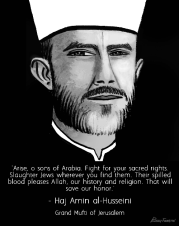








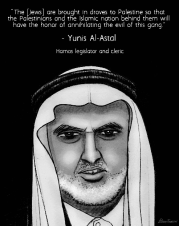
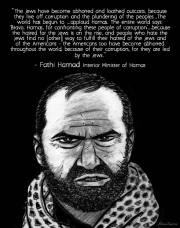

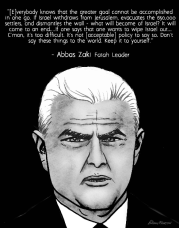

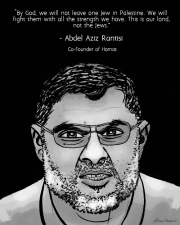
You must be logged in to post a comment.